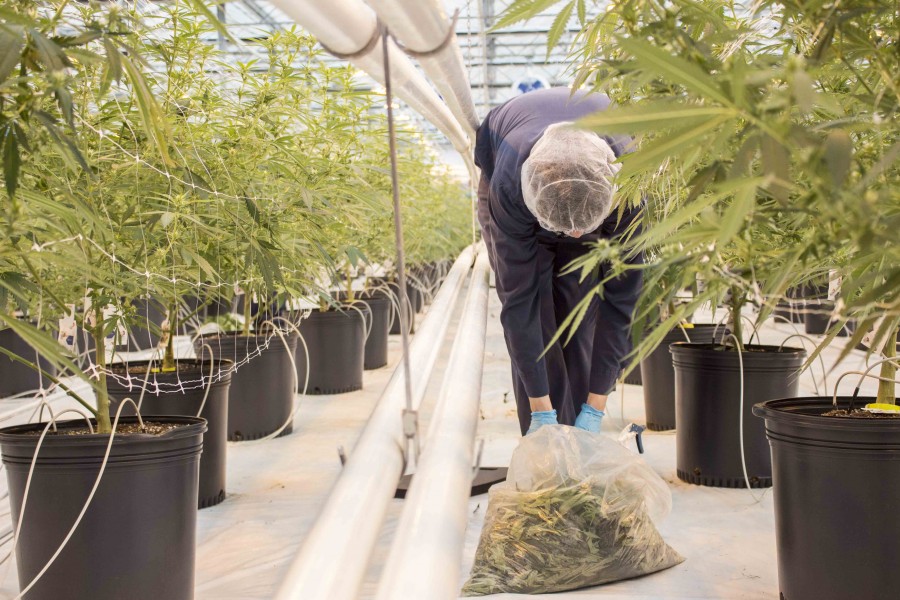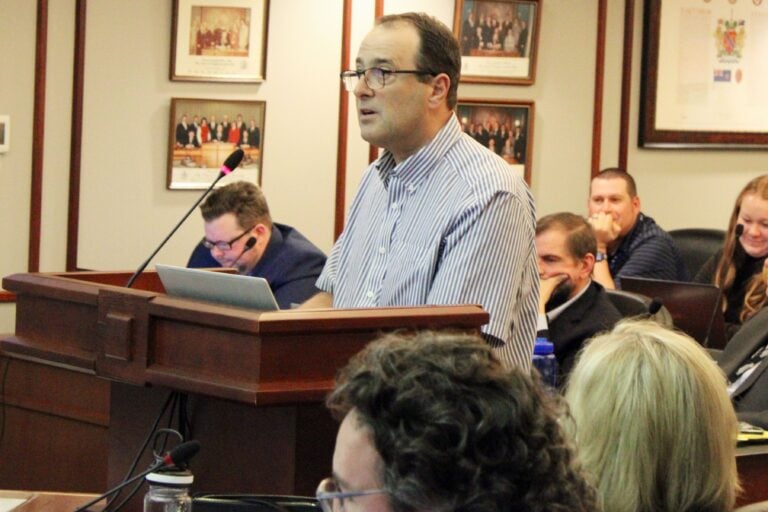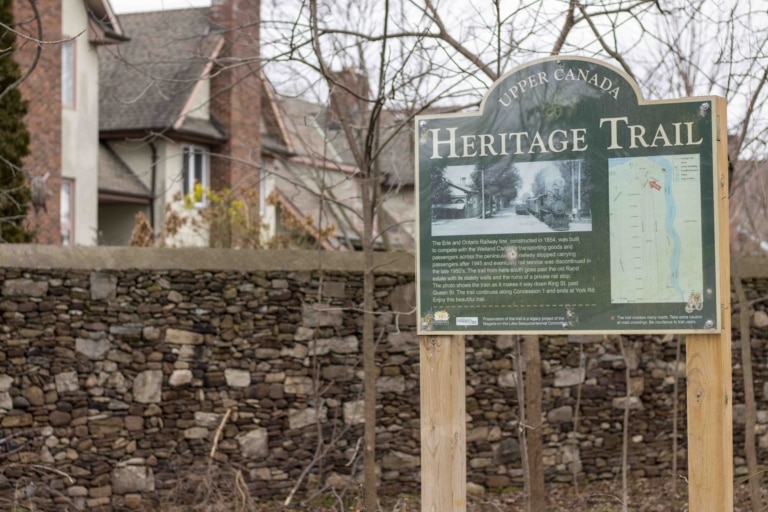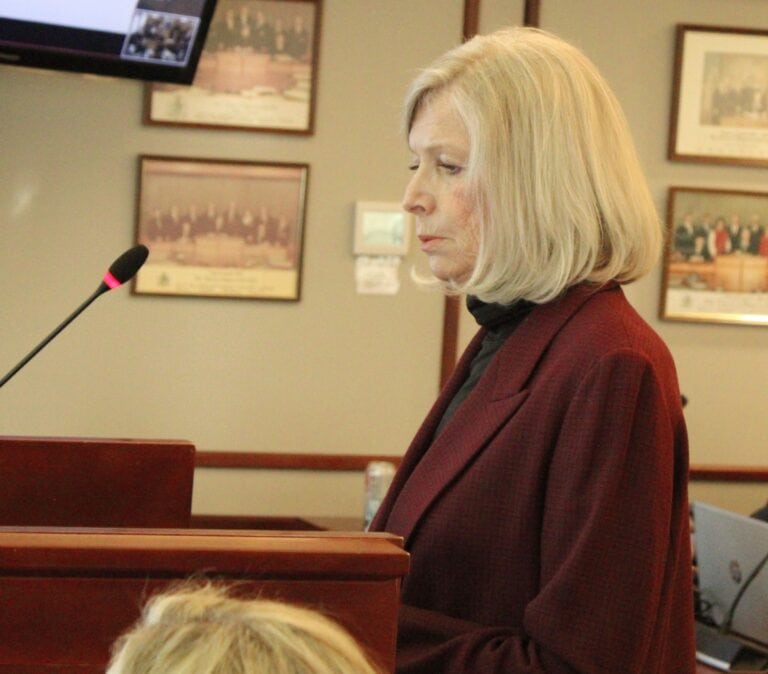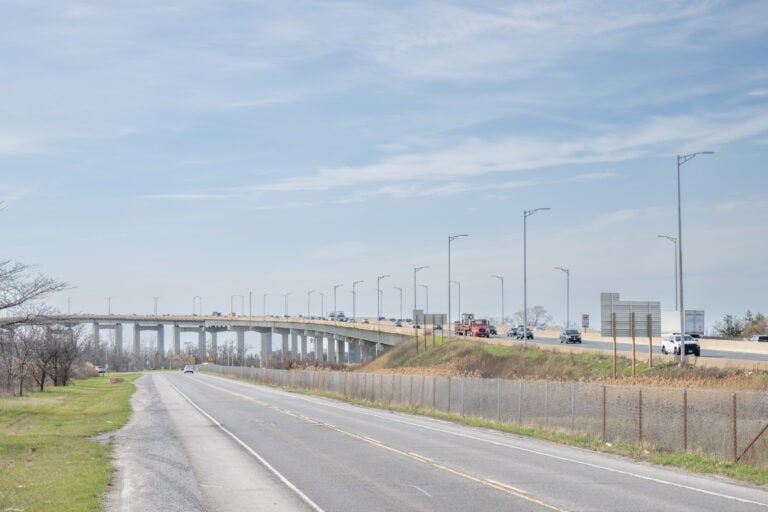As several residents made it clear to councillors Monday that the proposed setbacks for marijuana production facilities are too lenient, they learned there is at least one more potential marijuana producer seeking a commercial licence to operate in Niagara-on-the-Lake.
Most of those who spoke at an hour-long public meeting in a packed council chamber and lobby at town hall supported an increase to the existing setbacks from residential neighbourhoods, churches, schools, playgrounds and other “sensitive” areas where an operation would impact residents, but said the proposed bylaw, while more restrictive than the one currently on the books, does not go far enough.
The main concern with the potential growth of the marijuana industry, especially with legalized recreational use and increased demand for the product, is odour control and its impact on quality of life and property values to those who live nearby.
Councillors were asked to ensure any new bylaws “err on the side of caution,” with far greater setbacks than proposed.
A distance of 500 to 1,000 metres as a starting point was suggested by one resident who lives with odour problems from the Tweed Farms greenhouses on Concession 5, owned by Canopy Growth.
Andrew Stewart of St. Davids told councillors that although he is more than a kilometre away, “downwind” of Tweed's large commercial marijuana facilities, he is impacted by the noxious skunk smell from the greenhouses, especially during harvest time in spring and fall.
The proposed setbacks in the draft bylaw “fall far short of what should be done,” he said.
The draft bylaws under discussion say no land, building or structure used to produce or process marijuana, if equipped with air treatment control, may be closer than 70 meters to residential, institutional or open space land, or closer than 150 metres to sensitive land uses.
The proposed bylaws define air treatment control as “Industrial grade multi-stage carbon filtration system, or similar technology, to reduce and/or treat the emission of pollen, dust and odours expelled from a facility and sized accordingly in comparison to the facility it serves as designed by a qualified person.”
Without air treatment control the setback to sensitive land uses must be 300 metres or more, according to the draft bylaw, and would apply to outdoor crops.
Current federal legislation allows for no escape of odours from marijuana facilities, said Stewart, but complaints to Canopy have not solved the problem, and the response from complaints to the Town indicate confusion about what can be done.
He urged councillors to consider the residents and businesses they currently represent, including grape growers, and protect their properties, asking if the Town would rather be known as premier wine country or “a pot producer's paradise.”
Larkin Road resident Sue Bates also asked for increased setbacks, citing a Pelham production facility that is also causing issues with its residents. Even 1,000 metres would not be enough, she said – the lives of residents close to that facility “are forever changed.”
She described a possible scenario of a proliferation of outdoor marijuana crops, with large licensed growers contracting to smaller farmers, paying for their security fences, with only a 300-metre setback from other neighbours required in the proposed bylaw.
The setbacks “are insufficient,” said Bates, “and rural residents are not the only ones who could be impacted by this.”
Irene Murray, also on Larkin Road, where a marijuana operation was raided by police and charges laid, said she too opposes the setbacks as insufficient, “not as a NIMBY response” but for the good of the municipality. In the absence of scientific data regarding necessary setbacks, she also urged the Town to err on the side of caution with greater setbacks than those in the draft bylaw.
She said NOTL has had trouble with the registered designated medical marijuana growers, who can legally grow limited quantities for personal use without the restrictive licensing requirements of large commercial growers. Those problems are not addressed in the draft bylaw, she said.
She also addressed a comment made about a shortage of supply of medical marijuana for those who need it, saying that is not the responsibility of the municipality – what is important, she said, “is what this town will look like in the future.”
The issue of sufficient supply was raised by land-use planning lawyer Laura Dean of Toronto, representing a client who has acquired property in town and is in the process of seeking a Health Canada licence to produce medical marijuana in NOTL, although she did not mention the specific location.
Her client is opposed to increased setbacks as “unnecessary restrictions” that will make it more difficult to meet the needs of clients who rely on medical marijuana. She said the Town report on the draft bylaw doesn't provide “evidence or justification” for its proposal.
“I think it's premature to expand setbacks,” she said, adding her client takes odour control “quite seriously” and is working with leading engineering firms and the newest technology to ensure the facility will be of the “highest quality.”
Town planner Craig Larmour, in response to a question from Coun. Paolo Miele, said as far as he knows there is no application before the town at this point for a new marijuana facility – although town staff have received several enquiries, when it gets to the application stage council members are notified and the information is posted on the town's website.
Larmour was also asked how long it would take the draft bylaw to be completed and approved, given that any current applications would be processed under the existing setbacks. There have been a number of important issues raised, he said, and the bylaw shouldn't be rushed, but he couldn't provide an exact timeline for a report and recommendation to council.
Two representatives of Canopy Growth, owner of Tweed Farms in NOTL, also opposed the draft bylaw, which would make Tweed non-complying and could hinder any efforts of the company to undertake upgrades or modernization to the older greenhouses on the property, possibly preventing it from improving its odour control measures. In response to a question about what Tweed is doing to address odour control problem, councillors were told there are four to six kinds of air filtration and odour mitigation at work in different areas of the greenhouses, and further efforts are being made to improve the system.
While the gist of the presentations targeted odour control issues, Coun. Jim Collard asked Tweed representative Sean Wallace about the effect of the odour on other crops, such as peaches, pears and plums.
Wallace had no answer, saying that wasn't an issue they'd considered, but Brian Lillis, an Old Town resident and medical marijuana user, had a response. He can legally grow four plants in his home or back yard, he said, for relief of symptoms from Crohn's disease. “It blows my mind,” he said, that with today's technology, odour from greenhouses can't be controlled.
HIs answer to Collard's question brought some comic relief at the end of the lengthy meeing.
“I'm not going to eat a peach that smells like a doobie,” he said. “Nobody's going to.”



